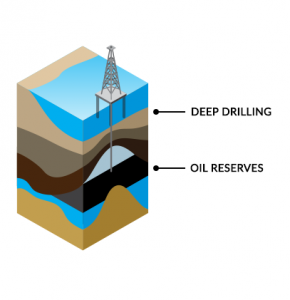All Categories
Featured
Table of Contents
Working As A Geophysicist And Oceanographer In Canada in South Perth Oz 2020
This work is increasingly contracted out, so consultancies provide another source of employment. Consultancy firms differ in size, from really small companies to big multinationals. Some consultancies are rather specialised in utilizing specific geophysical strategies or operating in specific areas, while others offer a more varied range of services to their customers.
The extraction of gas from land fill sites is another area of work and this may grow in the future. Expedition companies may carry out work for construction firms, public utility, mining companies and environmental companies, so geophysicists might be utilized in any of these settings. Other employers consist of: geological surveysgovernment bodies and agenciesuniversities and research study institutes.


Vacancies might be noted in the oil and gas sector press. Recruitment is impacted by oil cost variations and the level of competition for positions varies depending on this. Professions Days, which cover the complete range of geoscience professions and are usually participated in by a number of essential industry companies, are run by The Geological Society.
Geophysical Survey - Salisbury Archaeology in Burswood Aus 2023
A few of the big oil and gas companies offer a full two-year structured training programme throughout the breadth of geophysics, consisting of the opportunity to experience work in different groups before specialising in one area. Your training may include work on: existing wellsmagnetic and gravitational potential field data analysisresearchrock analysis. It's more usual for your preliminary training to be provided on the task.

There might be a probationary period during which you work along with an experienced associate. Competency-based appraisals happen regularly in the majority of firms. In smaller sized companies, and for scholastic posts, there is unlikely to be any official training - you'll be anticipated to start work straightaway and pick up skills as you go along.
If you work for a smaller sized business, you may find that you require to take obligation for arranging and funding your own advancement and training. If you have a geology degree, membership of The Geological Society can be useful for networking and for maintaining to date with the industry.
Geophysicist Jobs in Iluka Western Australia 2021
You might likewise discover it beneficial to sign up with the PESGB (The Petroleum Expedition Society of Great Britain, which has a geophysics unique interest group. After a probationary period, and once you have actually gotten some experience, you could advance to senior geophysicist, then team leader and then into a senior role in management.
The ease of motion between roles depends on the business structure. Research study at Masters or Ph, D level in a subject associated to geophysics or geosciences may help with your profession advancement and progression. The work market within the oil and gas market is very based on price and this may affect your chances for career development.
Not all tasks are dependent on the oil and gas industries. For experienced geophysicists, freelance consultancy provides a good route for career development. You can likewise specialise in a specific area of geophysics. As a geophysicist, you're most likely to have numerous jobs throughout your working life. International movement is crucial for dealing with peaks and troughs in different countries at various times.
Geophysics in North Beach Aus 2021
From geophysics, it's possible to focus on seismology (completing further training to end up being a seismic interpreter) or to move into related areas such as engineering geology or hazard forecast.
Deciding what to study in college is a hard option. Even if you know that your field of interest lies in science, what program of research study is best for you? If you make the decision to major in physical and life sciences and pursue a career as a geophysicist, you're getting ready for an interesting and lucrative occupation.
However the first action to achieving your objective of ending up being a geophysicist is making a degree. Even for entry-level positions in the field of geoscience, you'll require a bachelor's degree (a geophysicist college degree) from a recognized college or university. Some research study positions need candidates to hold master's degrees or perhaps Ph.
Geophysical Survey - Plaza Of The Columns Complex in Trigg Oz 2021
Postgraduate degree are particularly important if you prepare to teach at a four-year organization. Geophysicists use physics ideas and methods to study the gravitational, magnetic, and electrical fields of the earth. This advances researchers' understanding of both the world's interior core and its surface area. Geophysicists must be able to: evaluate rocks, photographs, and other pieces of information conduct research study both in the field and in labs create maps and charts of their findings compose reports To accomplish all this, trainees require a specialized education for geophysicist professions.
As specified above, you'll require a bachelor's degree in geoscience or a related discipline, such as a physical science or a life sciences, to land an entry-level task. Students can also prepare by majoring in subjects like: Biology Chemistry Computer system science Engineering Mathematics Physics The above geophysicist majors use a more generalized technique to a single clinical discipline, but the majority of programs need trainees to take one or more geology course.
Table of Contents
Latest Posts
Greeley-evans Area 3d Geophysical Survey in Bicton Australia 2022
Airborne Geophysical Methods in Bateman Western Australia 2022
Integrated Geophysical Surveys For The Safety in Beeliar Australia 2021
More
Latest Posts
Greeley-evans Area 3d Geophysical Survey in Bicton Australia 2022
Airborne Geophysical Methods in Bateman Western Australia 2022
Integrated Geophysical Surveys For The Safety in Beeliar Australia 2021